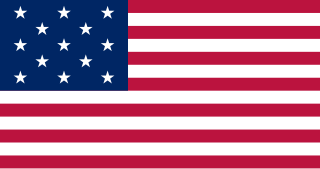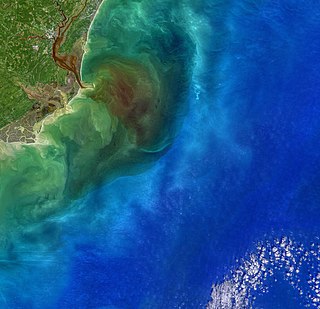Cheshire Township is a civil township of Allegan County in the U.S. state of Michigan. The population was 2,199 at the 2010 census.

Chicora is a borough in Butler County, Pennsylvania, United States. The population was 1,043 at the 2010 census.

The Northwest Territory, also known as the Old Northwest and formally known as the Territory Northwest of the River Ohio, was formed from unorganized western territory of the United States after the American Revolution. Established in 1787 by the Congress of the Confederation through the Northwest Ordinance, it was the nation's first post-colonial organized incorporated territory.

The Algonquians are one of the most populous and widespread North American native language groups. They historically were prominent along the Atlantic Coast and in the interior regions along Saint Lawrence River and around the Great Lakes. This grouping consists of the peoples who speak Algonquian languages.

CSS Chicora was a Confederate ironclad ram that fought in the American Civil War. It was built under contract at Charleston, South Carolina in 1862. James M. Eason built it to John L. Porter's plans, using up most of a $300,000 State appropriation for construction of marine batteries; Eason received a bonus for "skill and promptitude." Its iron shield was 4 inches (102 mm) thick, backed by 22 inches (559 mm) of oak and pine, with 2-inch (51 mm) armor at its ends. Keeled in March, it was commissioned in November, Commander John Randolph Tucker, CSN assuming command.
The Waccamaw people were an Indigenous people of the Southeastern Woodlands, who lived in villages along the Waccamaw and Pee Dee rivers in North and South Carolina in the 18th century.
The Cape Fear Indians were a small, coastal tribe of Native Americans who lived on the Cape Fear River in North Carolina.

Winyah Bay is a coastal estuary that is the confluence of the Waccamaw River, the Pee Dee River, the Black River, and the Sampit River in Georgetown County, in eastern South Carolina. Its name comes from the Winyaw, who inhabited the region during the eighteenth century. The historic port city of Georgetown is located on the bay, and the bay generally serves as the terminating point for the Grand Strand.

Chicora was a legendary Native American kingdom or tribe sought during the 16th century by various European explorers in present-day South Carolina. The legend originated after Spanish slave traders captured an Indian they called Francisco de Chicora in 1521; afterward, they came to treat Francisco's home country as a land of abundant wealth and natural resources. The "Chicora Legend" influenced both the Spanish and the French in their attempts to colonize North America for the next 60 years.
Santa Elena, a Spanish settlement on what is now Parris Island, South Carolina, was the capital of Spanish Florida from 1566 to 1587. It was established under Pedro Menéndez de Avilés, the first governor of Spanish Florida. There had been a number of earlier attempts to establish colonies in the area by both the Spanish and the French, who had been inspired by the earlier accounts by Chicora and Hernando de Soto of rich territories in the interior. Menéndez's Santa Elena settlement was intended as the new capital of the Spanish colony of La Florida, shifting the focus of Spanish colonial efforts north from St. Augustine, which had been established in 1565 to oust the French from their colony of Fort Caroline. Santa Elena was ultimately built at the site of the abandoned French outpost of Charlesfort, founded in 1562 by Jean Ribault.
Oakland most commonly refers to Oakland, California, United States.
Francisco de Chicora was the baptismal name given to a Native American kidnapped in 1521, along with 70 others, from near Winyah Bay by Spanish explorer Francisco Gordillo and slave trader Pedro de Quexos, based in Santo Domingo and the first Europeans to reach the area. From analysis of the account by Peter Martyr, court chronicler, the ethnographer John R. Swanton believed that Chicora was from a Catawban group.

Lady's Island is a predominantly residential Sea Island located in Beaufort County, South Carolina. Small portions of the island are within the City of Beaufort, while the majority of the island remains unincorporated. The South Carolina Highway 802, also known locally as Sams Point Road, serves as the principal highway for Lady's Island and provides the only access to Coosaw Island.

Liberty Universalist Church and Feasterville Academy Historic District is a national historic district located near Winnsboro, Fairfield County, South Carolina. The property encompasses four buildings constructed between 1831 and 1845. They are the Liberty Universalist Church and three buildings associated with the Academy: a boarding house, a kitchen, and a school building. The buildings were constructed by the Feaster family.

The Chicora Wood Plantation is a former rice plantation in Georgetown County, South Carolina. The plantation itself was established sometime between 1732 and 1736 and the 1819 plantation house still exists today. In 1827, Robert Francis Withers Allston (1801–1864) resigned as surveyor-general of South Carolina to take over full-time management of Chicora Wood, which he had inherited from his father. Chicora Wood served as a home base for his network of rice plantations, which produced 840,000 pounds of rice in 1850 and 1,500,000 pounds by 1860. 401 slaves worked the plantation in 1850, increasing to 630 by 1860.

SS Chicora was a passenger-and-freight steamer built in 1892 for service on the Great Lakes. Considered to be one of Lake Michigan's finest steamers, she was lost with all hands in January 1895. She is now remembered chiefly for being mentioned by Chicago writer Nelson Algren, in Algren’s prose-poem, Chicago: City on the Make: “Who now knows the sorrowful long-ago name of the proud steamer Chicora, down with all hands in the ice off South Haven?” as well as “Sunk under the ice in the waves off South Haven, sunk with all hands for good and forever, for keeps and a single day.”

The Waccamaw Indian People is a state-recognized tribe and 501(c)(3) nonprofit organization headquartered in Conway, South Carolina. The organization was awarded the status of a state-recognized tribe by the South Carolina Commission of Minority Affairs on February 17, 2005 and holds the distinction of being the first state-recognized tribe within South Carolina. The Waccamaw Indian People are not federally recognized as a Native American tribe and are one of two organizations that allege to be descended from the historic Waccamaw, the other being the Waccamaw Siouan Indians, a state-recognized tribe in North Carolina. The two organizations are not affiliated with one another.










